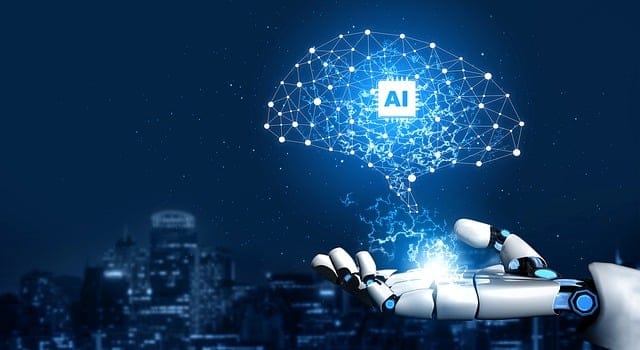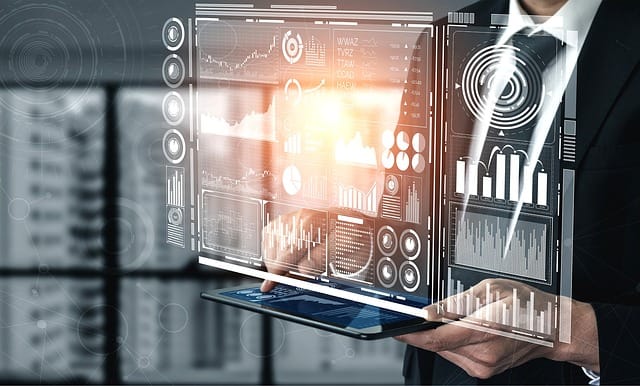So, how is AI shaping the future of work? Well, think of it as your personal assistant on steroids. From automating repetitive tasks to analyzing mountains of data in seconds, AI is here to turbocharge productivity. For instance, have you ever wished someone could sift through all those endless spreadsheets? AI does just that, reducing the time we spend on mundane tasks and allowing us to focus on what truly matters—innovating and creating.
Let’s talk about job roles. Some people may worry that AI is taking jobs away. But let’s flip that narrative. AI has the potential to create new opportunities. Picture this: as routine tasks are automated, new roles emerge—analysts, AI trainers, and tech ethicists. These aren’t just buzzwords; they’re becoming essential professions. It’s like a game of musical chairs where the music plays differently, but the opportunities keep evolving!
Then there’s collaboration. AI tools enhance teamwork by providing real-time insights and facilitating seamless communication, making it easier for teams to work together, no matter where they are. Ever tried to brainstorm ideas through a screen? With AI-powered platforms, it can feel almost like being in the same room, sharing spontaneous ideas and building on each other’s strengths.
Revolutionizing the Workplace: How AI is Redefining Jobs and Opportunities
Think about it: AI tools are filling the mundane gaps in our work lives, handling repetitive tasks that once consumed hours. From automating reports to predicting market trends, they’re like having a reliable partner who never tires. This shift allows us, the humans, to focus on creative problem-solving and innovation—things machines just can’t do as well. Isn’t that a refreshing thought?
With AI taking on the grunt work, new job categories are popping up faster than ever. Roles like AI ethicists and machine learning trainers are becoming essential as companies seek to navigate this new landscape, much like the way the invention of the internet created roles that we never knew we needed. And for those looking to climb the ladder, upskilling in AI-related competencies is becoming a golden ticket. It’s like adding a shiny new tool to your toolbox!
But let’s not ignore the elephant in the room: job displacement. Yes, some roles may fade away, like dusk giving way to night. However, the silver lining? The emergence of more complex, fulfilling roles that can offer greater satisfaction. Think of AI not as a competitor but as a powerful ally, enhancing our capabilities and unlocking a wealth of opportunities that were once unimaginable.
Whether you’re a marketer, engineer, or even a creative, the way we work is set to evolve dramatically. The future is calling—are you ready to answer?
From Automation to Innovation: The AI-Powered Workforce of Tomorrow
Have you ever thought about how automation helps free your mind from mundane chores? Take a moment to visualize that repetitive task you’ve done countless times. Now, imagine an AI stepping in, taking over, and leaving you to focus on the creative and strategic aspects of your job. It’s like having a superpower at your fingertips! By automating routine activities, we can devote our energy to doing what truly ignites our passion.
But it doesn’t stop there. The real magic happens when automation morphs into innovation. AI isn’t just about doing tasks faster; it’s about discovering new ways to solve problems. Think of it like a trusty compass guiding you through uncharted waters. With data analytics powered by AI, businesses can uncover insights they’ve never tapped into before. The workforce isn’t merely shifting gears; it’s barreling down the highway of innovation, with AI as the fuel.
Can you feel that buzz in the air—the excitement of endless possibilities? As companies embrace this AI revolution, they’re not only adapting but also evolving. They’re reinventing products, optimizing customer experiences, and even predicting market trends. It’s like having a crystal ball that brings clarity to the chaos of business landscapes.

So, whether you’re a seasoned professional or just starting your career, one thing is clear: the AI-powered workforce of tomorrow isn’t just a trend; it’s an extraordinary journey into a world where human potential and technology unite to create something spectacular.
AI at Work: Exploring the New Skills Needed for an AI-Driven Economy
First off, let’s talk about adaptability. In a world where AI tools pop up like mushrooms after rain, being flexible is key. You’ll need to embrace change—think of yourself as a surfer riding a wave. One moment you’re on a traditional workflow, and the next, you’re catching the next big idea in AI technology. Being willing to learn on the go could mean the difference between keeping up or being left behind.

Next up is the ability to collaborate with AI systems. It’s no longer just about competing with technology, but rather working alongside it. Imagine having an assistant that can analyze patterns in hours that would take you weeks! This means developing a skill set that includes understanding how to effectively communicate with AI tools—something that may feel like learning a new language at first.

Lastly, don’t underestimate the power of creativity. As machines handle the mundane, human creativity becomes even more valuable. Think of yourself as a painter with a vast palette of possibilities; the more you innovate and think outside the box, the better equipped you’ll be to thrive.
So, in an AI-driven world, it looks like we need to become lifelong learners, collaborative partners, and bold creators. Are you ready to make that leap?
Balancing Act: The Role of Human Creativity in an AI-Dominated Workplace
Let’s face it, AI is fantastic at handling repetitive tasks. It’s like that friend who can organize a party with stunning decorations and a perfect playlist, but when it comes to arranging an intimate toast to really touch hearts? That’s where we step in! Humans excel at thinking outside the box, crafting stories, and connecting on an emotional level. For instance, ever watch a brainstorming session? Ideas bounce around like popcorn, each one igniting another. That’s the kind of spark AI can’t mimic; it doesn’t dream or feel.
Moreover, in a world flooded with data, it’s the human instinct that shines through in making decisions—like navigating a maze where each turn counts. Can you imagine letting a computer decide the direction of your career? Sounds unsettling, right? That’s precisely why creativity and emotional intelligence become crucial. They guide us through the noise, helping us find innovative solutions that resonate with human experiences.
So, while AI can enhance productivity, it’s our creativity that takes the lead on the artistic front. It’s almost poetic, really. In this mesmerizing dance between man and machine, we bring the rhythm, imagination, and heart that transforms ordinary tasks into extraordinary experiences. Wouldn’t you agree that balancing both sides is the ultimate key to thriving in tomorrow’s workplace?
Frequently Asked Questions
How Can Businesses Effectively Integrate AI Technologies?
Businesses can effectively integrate AI technologies by identifying clear use cases, investing in the right infrastructure, training staff on AI tools, developing a data strategy for quality inputs, and continuously monitoring performance to optimize results. Collaboration with AI experts and staying updated with industry trends are also crucial for successful implementation.
What Are the Benefits and Challenges of AI in the Workforce?
AI in the workforce enhances efficiency and productivity by automating repetitive tasks, enabling data-driven decision-making, and optimizing workflows. However, it poses challenges such as job displacement concerns, the need for new skills, and ethical considerations regarding bias and privacy. Balancing these benefits and challenges is crucial for successful integration.
Will AI Create More Jobs or Eliminate Them?
The impact of AI on jobs is complex, as it can both create new opportunities and lead to job displacement. While AI may automate certain tasks, it also enhances productivity, leading to the emergence of new roles and industries. The net effect on employment depends on factors like education, adaptability, and the pace of technological advancement.
What Skills Will Be Essential in an AI-Driven Workplace?
In an AI-driven workplace, essential skills include adaptability to technology, data literacy to interpret AI-generated insights, critical thinking for problem-solving, and collaboration skills to work effectively with both humans and AI systems. Strong communication skills are also crucial to convey ideas clearly across teams and with AI tools.
How Is AI Transforming Job Roles and Responsibilities?
Artificial intelligence is reshaping job roles by automating repetitive tasks, enhancing decision-making, and enabling more efficient processes. As a result, employees may shift towards more strategic, creative, and interpersonal responsibilities. This transformation not only increases productivity but also requires workers to adapt by developing new skills, emphasizing the importance of continuous learning in the evolving job landscape.






